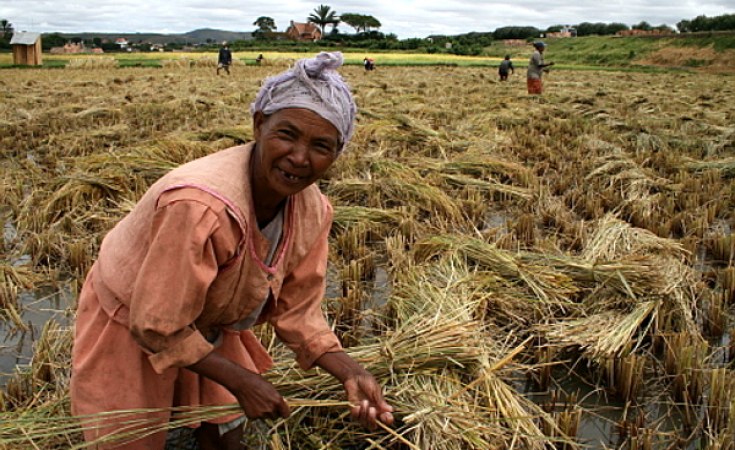Cape Town — Industrialized countries have delivered an historic increase in development aid to Africa in the past five years, but they have gone only three-fifths of the way towards meeting their targets and there is an urgent need for a new plan to help the continent develop.
This is the conclusion of the global anti-poverty advocacy group, ONE, in a report which assesses the degree to which the G8 countries lived up to the aid promises they made at their summit in Gleneagles, Scotland, in 2005.
The report, issued today, says "there has been great progress in the past five years but … we have enough data to know that the targets and their ambitiously hopeful outcomes have not been met."
The original Group of Seven countries which made five-year commitments in Gleneagles – Canada, France, Germany, Italy, Japan, the United Kingdom and the United States – are on track to deliver 61 percent of their combined commitments to sub-Saharan Africa, or U.S.$13.7 billion of the $22.6 billion increase they promised.
"Donors have supported African countries to make important strides in their own development agendas, such as scaling up access to life-saving antiretroviral drugs and sending 42 million more children to school," the report says.
ONE has taken on the task of monitoring whether developed countries comply with their aid commitments. It looks to groups such as the Africa Progress Panel, which also releases a major report today, the African Monitor and other civil society groups to assess corresponding commitments on issues, such as good governance, made by African leaders.
Its report says "if there is one lesson to take away … it is that the exercise of setting bold, collective goals in the fight against poverty yields results." But, it adds, "at this point, for the period 2010 to 2015 [by which date the Millennium Development Goals (MDGs) are meant to be met] neither the G8 nor any other grouping of developed or emerging nations has put forward a specific, comprehensive collective plan focused on how to help support the vision of 'an Africa driven by its own citizens.'"
The report calls for this year's G8 and G20 meetings, and on a United Nations MDG Summit in September, to draw up a new framework. "It is critical," it says, "that 2010 does not close without a roadmap for the future."
This should include a focus on three policy areas: "governance and accountability; sustainable, equitable economic growth; and increased effective aid for proven mechanisms and programmes."
Problems outlined in the ONE report include:
• The number of countries with unsustainable debt burdens has fallen "only moderately" despite significant gains for some countries.
• Progress in improving the quality of aid has been slow.
• The "vague commitment" to "make trade work for Africa" has resulted in little progress. While foreign direct investment increased ten-fold from 2000 until the 2008 global financial crisis, developed countries had entrenched subsidies protecting domestic interests and "momentum has all but vanished" from efforts to free up international trade.
But the report also records how the rise in development aid has achieved "impressive results in targeted areas, especially when matched with investment and political will by African governments."
It outlines these areas:
HIV/Aids
"Although African countries still have a long way to go in preventing the spread of HIV and in reaching the international target of universal access to prevention, care and treatment, the impact of increased investments to fight the disease in the past decade has been transformative. In sub-Saharan Africa, where experts once questioned if life-saving ARVs could even be delivered, nearly 3 million people in need are now receiving drugs, compared with only 100,000 in 2003."
Malaria
"The world has exceeded the Gleneagles goal of delivering 100 million bed-nets, with 200 million delivered between 2006 and 2009. In Ethiopia, Eritrea, Rwanda, Zanzibar and Zambia, where bed-net distribution has been matched with other interventions such as indoor spraying and effective anti-malaria drugs, cases and deaths due to malaria have fallen by 50 percent."
Child Survival
"Investments in immunisation, treatment and prevention of malaria and other interventions have cut annual child deaths in half since 1960, from 20 million to 8.8 million. The Global Alliance for Vaccines and Immunisations (GAVI) alone has averted 5.4 million future child deaths."
Primary Education
"Thanks to savings from debt relief invested in education, development assistance, and scaled-up African government prioritization, 42 million more children have enrolled in school, and their completion rates are slowly improving. Nearly 75 percent of children are now enrolled in school across Africa, compared with only 58 percent in 1999, and Tanzania, Burkina Faso and Zambia have achieved enrolment above 90 percent. Benin, Madagascar and Zambia are on track to achieve universal primary education (UPE) by 2015."
Agriculture
"All eight African countries that spent more than 10 percent of their budgets on agriculture during 2004–07 have achieved reductions in the proportion of hungry people over the past decade – among them Ethiopia (which reduced the proportion from 63 percent to 46 percent between 1995 and 2005) and Malawi (45 percent to 29 percent)."
ONE said that progress on the "vaguer Gleneagles commitments" such as investment in water and sanitation had been less impressive, "and although the G8 and other donor groups have repeated their promises on issues such as maternal health and health systems, targets remain vague and results have not yet been achieved."


